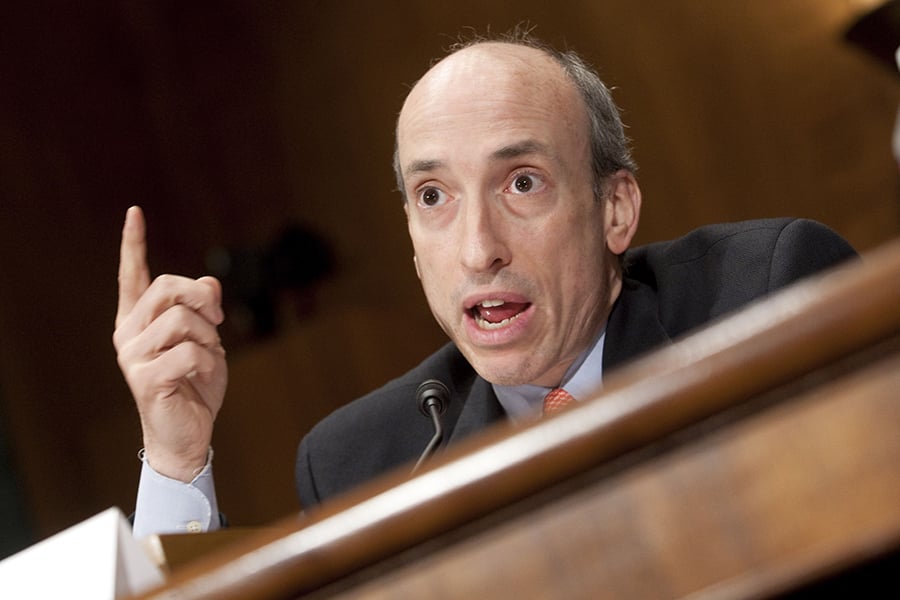

Securities and Exchange Commission Chair Gary Gensler is making it clear he’s skeptical the hundreds of investment funds that tout ESG credentials are as green or socially conscious as advertised.
On Tuesday, the Wall Street regulator posted a video on Twitter that highlights some of his top concerns.
Gensler pointed out that there’s no industry consensus on what environmental, social and governance investing means. He questioned whether firms are adhering to a 1940 law that requires fund names to match what they invest in. And he noted that unlike many high-yield bond funds, ESG offerings don’t publish debt ratings that back up their labels.
“When I think about these questions, I’m reminded of walking down the aisle of a grocery store and seeing a product like fat-free milk,” Gensler said. “In that case, you can see objective figures, like grams of fat, which are detailed on a nutrition label. Investors should be able to drill down and see the ingredients underlying these funds.”
The video is Gensler’s latest attempt to clamp down on so-called greenwashing, in which money managers improperly market funds as ESG. He reiterated that the SEC is working on a rule that would force firms to disclose the criteria and underlying data they rely on in labeling funds ESG.
[More: Are asset managers giving plain old funds a green tint?]

The looming threat of federal funding cuts to state and local governments has lawmakers weighing a levy that was phased out in 1981.

The fintech firms' new tools and integrations address pain points in overseeing investment lineups, account monitoring, and more.

Canadian stocks are on a roll in 2025 as the country prepares to name a new Prime Minister.

Carson is expanding one of its relationships in Florida while Lido Advisors adds an $870 million practice in Silicon Valley.

The approval of the pay proposal, which handsomely compensates its CEO and president, bolsters claims that big payouts are a must in the war to retain leadership.
RIAs face rising regulatory pressure in 2025. Forward-looking firms are responding with embedded technology, not more paperwork.
As inheritances are set to reshape client portfolios and next-gen heirs demand digital-first experiences, firms are retooling their wealth tech stacks and succession models in real time.
